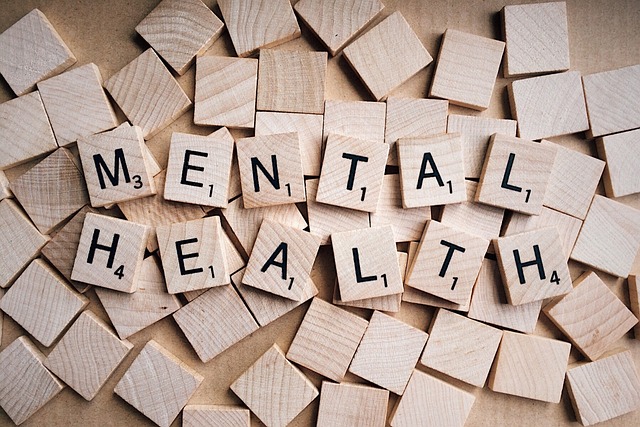Your Mental Health Matters
Mental health is an essential component of our overall well-being. Our mental health influences how we think, feel, and act. Taking proactive steps to care for your mental health can enhance your quality of life and help you navigate life’s challenges more effectively. This guide offers practical tips for improving your mental health, from prioritizing quality sleep and physical activity to engaging in self-care and seeking support. By incorporating these practices into your daily routine, you can build resilience, reduce stress, and cultivate a more balanced and fulfilling life. Remember, mental health care is not a one-size-fits-all approach; find what works best for you and make it a priority.
Little Changes Can Create a Big Impact on Your Mental Health
Prioritize Quality Sleep

Sleep is crucial for mental health. Aim for 7-9 hours of quality sleep each night to give your brain and body the rest they need. Establish a regular sleep schedule by going to bed and waking up at the same time every day, even on weekends. It’s also important to create a peaceful environment by keeping your bedroom cool, dark, and quiet. Most importantly, limit screen time before bed as the blue light emitted by screens can interfere with your ability to fall asleep. If you struggle with sleep, consider relaxation techniques such as deep breathing, meditation, taking a relaxing bath, or even reading a book before bed.
Get Moving
Physical activity releases endorphins, and when our body releases endorphin it is a natural mood lifter. We recommend at least 30 minutes of moderate exercise 5-7 days of the week. This could be as simple as a brisk walk, a yoga session, or a workout at the gym. Find an activity you enjoy, as you’re more likely to stick with it. Regular physical activity not only improves your physical health but also has a significant positive impact on your mental well-being by reducing stress, anxiety, and symptoms of depression.
Take Time for Yourself
Self-care is essential for maintaining good mental health. Dedicate time each day to activities that you enjoy and that help you relax. This could be reading a book, listening to music, gardening, or spending time with loved ones. Making time for hobbies and interests can provide a sense of accomplishment and joy, which is crucial for your emotional well-being. Remember, taking time for yourself is not selfish; it’s necessary for maintaining a balanced life.
Connect with Others
Building and maintaining strong relationships can have a profound impact on your mental health. Spend time with family and friends, engage in social activities, and consider joining clubs or groups that interest you. Sharing your thoughts and feelings with trusted individuals can provide emotional support and help you feel more connected. Even a simple phone call or text message can make a difference in your day.
Practice Mindfulness
Mindfulness involves focusing on the present moment and accepting it without judgment. Incorporating mindfulness practices, such as meditation, deep breathing exercises, or mindful walking, into your daily routine can help reduce stress and improve your overall mental health. Mindfulness can also enhance your self-awareness and help you manage difficult emotions more effectively.
Seek Professional Help When Needed
If you find yourself struggling with mental health issues, don’t hesitate to seek professional help. Therapists, counselors, and mental health professionals can provide support, guidance, and effective treatment options. Seeking help is a sign of strength, not weakness, and can be a crucial step in improving your mental health. Remember, you don’t have to face challenges alone – professional support is available to help you navigate difficult times.
Breaking the Stigma
Educate Yourself and Others
Learn about mental health conditions and share that knowledge with others. Understanding that mental health issues are common and treatable can help change perceptions. By educating yourself, you can challenge misconceptions and prejudices that contribute to stigma. Additionally, when you share accurate information with others, you help build a more informed and compassionate community.
Talk Openly About Mental Health
Share your experiences and listen to others. Open conversations can help normalize mental health issues and make people feel more comfortable seeking help. Talking openly about mental health can also reduce feelings of isolation and shame. By being vulnerable and honest about your own struggles, you can inspire others to do the same and seek the support they need.
Support Others
Show compassion and understanding to those struggling with mental health issues. Encourage them to seek professional help and remind them that it’s okay to not be okay. Offering a listening ear, empathy, and non-judgmental support can make a significant difference in someone’s life. Letting others know that they are not alone and that help is available can empower them to take steps towards recovery.
Advocate for Change
Advocate for policies and practices that support mental health awareness and access to care. This can involve participating in mental health awareness campaigns, supporting mental health organizations, and voting for policies that improve mental health services. By advocating for systemic change, you can help create an environment where mental health is prioritized, and stigma is reduced. Your voice and actions can contribute to a larger movement that seeks to ensure everyone has access to the mental health care they need.
Reach Out for Support

Taylor Kiechle, Clinic Manager
Behavioral Health, Surgical & Philadelphia Medical Center
“At Carthage Behavioral Health, we’re not just a team; we’re a family committed to your well-being. With the recent addition of two Therapists, a Medication Provider, and a Registered Nurse, we’re expanding our support for our community’s needs. Each member brings passion and dedication to their role, and I couldn’t be prouder of our incredible team,” says Taylor Kiechle, Clinic Manager Behavioral Health, Surgical & Philadelphia Medical Center. “As we honor Mental Health Awareness Month, I want to remind you: your mental health matters. Take time for yourself, prioritize quality sleep, get moving, and reach out for support when you need it. Together, we can thrive.”
Don’t hesitate to seek help when you need it. Talk to friends, family, or a mental health professional about what you’re going through. Sharing your feelings with someone you trust can provide relief and perspective.
At Carthage Behavioral Health, we’re here to support you with our dedicated team of therapists, medication providers, and registered nurses. Remember, seeking help is a sign of strength, not weakness, and it’s an important step towards better mental health.
Carthage Behavioral Health Services
Office Hours:
Monday – Friday 8 a.m. – 6 p.m.
Contact Info
- Street Address: 3 Bridge Street
- City: Carthage
- State: NY
- Zip Code: 13619
- Phone: (315) 493-3300
- Fax: (315) 493-3306



